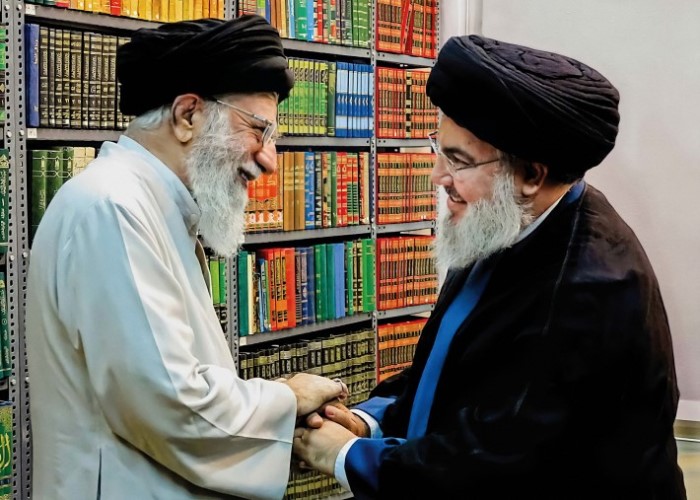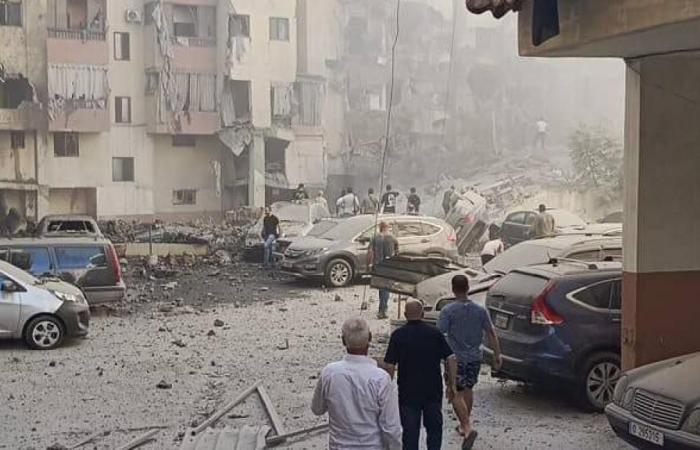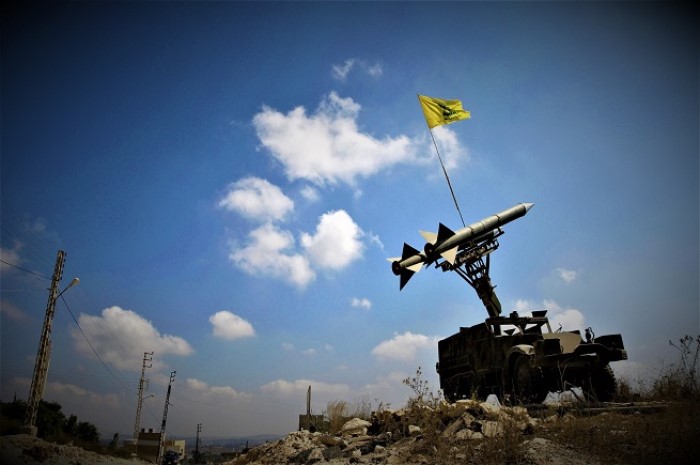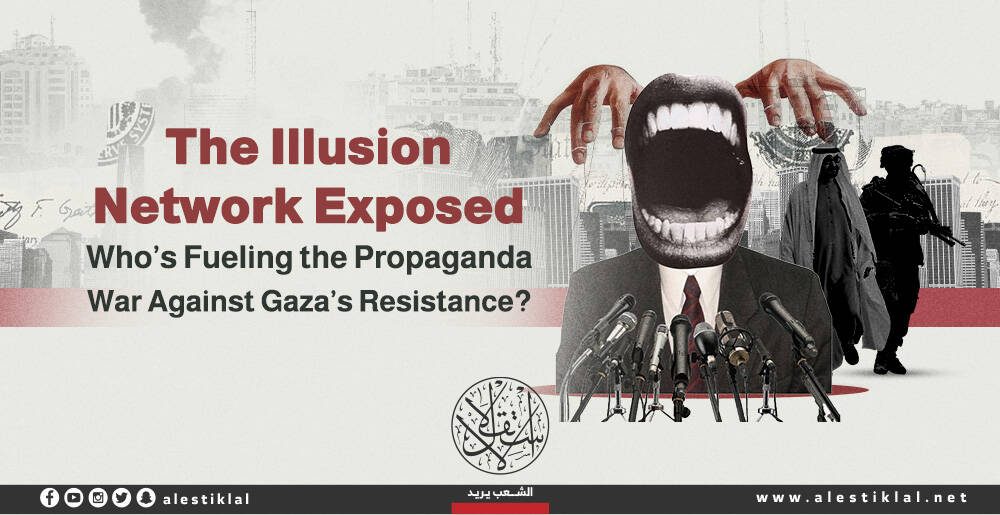Two Inevitable Options: How Will Hezbollah Respond to Israeli Ongoing Strikes?

“Israel is exploiting the red line drawn for Hezbollah to avoid escalating into war.”
With the escalation of Israeli attacks against Lebanese Hezbollah, questions have arisen regarding Tel Aviv's objectives in its persistent efforts to draw the Iranian axis into direct conflict. This comes amidst discussions about the Israeli Occupation’s attempts to restore its image, which the Palestinian Resistance significantly damaged on October 7, 2023.
Despite Israeli violation of Iranian sovereignty, the assassination of Hamas leader Ismail Haniyeh on Iranian territory, strikes against Iranian leaders in Syria, the killing of prominent Hezbollah leaders, and the painful blows dealt to the Houthis in Yemen, the Iranian response has been notably subdued.
As Israeli assaults against the Iranian axis intensify, particularly in Lebanon, Iran maintains its reluctance to engage in war with the Israeli Occupation, raising pressing questions about Hezbollah's commitment to Tehran's wishes and whether Iran is content with the situation facing the party.
Refusal of War
In a reiteration of its position, Iran continues to threaten an unprecedented response to “Israel.” On September 22, Mohsen Rezaee, a member of Iran's Expediency Discernment Council, stated that “Supreme Leader Ali Khamenei does not wish to ignite a war with Tel Aviv under the current circumstances.”
During a conference commemorating the victims of the Iran-Iraq War in the 1980s, the former Revolutionary Guard commander said that “Israel seeks to ignite a war in response to the Iranian retaliation for the assassination of Ismail Haniyeh.”
Regarding the Iranian response to Haniyeh's assassination on July 31, Rezaee said, “We are in a state of vigilance and will act wisely and strongly at the right moment.”
“We had no intention to enter a war, but they incited a bully to attack Iran.” He pointed out that “Netanyahu, whose madness resembles that of Saddam [the former Iraqi president], has now been provoked to wage war against Iran, and he attacked our consulate in Damascus.”
Rezaee explained that Iran responded to the Israeli attack on its consulate in Damascus in early April 2024 “in a manner that does not lead to war,” asserting, “They have assassinated Haniyeh on our soil, and we must take action now.”
“Israel is doing everything it can to draw Iran into war and undermine the Supreme Leader's wise policies,” reaffirming that “Hezbollah will not allow the Zionist entity to operate freely.”
Hezbollah suffered a significant blow with the deaths of dozens and injuries to thousands of its members following the Israeli detonation of approximately 4,000 pager and wireless communication devices on September 17 and 18, 2024. This was followed by airstrikes in the southern suburbs, resulting in the deaths of "Radwan" unit leader Ibrahim Aqeel and Ahmad Wahbi, the training officer in the elite unit.
In response to these ongoing attacks, Hezbollah launched an offensive against “Israel” on September 22, firing more than 100 rockets at five targets in occupied territories, injuring five Israelis in Haifa, according to Haaretz.

Two Inevitable Options
Regarding Hezbollah's options in light of the ongoing Israeli attacks and Iran's refusal to enter the war, Iranian affairs researcher Firas Elias stated that “Israeli behavior has left Lebanese Hezbollah with only two choices.”
In a post on X on September 20, Elias explained that Hezbollah's options are either to respond and bear the consequences of that response—potentially leading to a situation similar to Gaza—or not to respond, which would result in the internal erosion of Hezbollah due to ongoing intelligence breaches that have cost it leadership and personnel.
“There is no disagreement that Iran's desire to avoid a new war in the region has significantly constrained Hezbollah's actions, particularly in maintaining the rules of engagement with Israel.”
“How long will Hezbollah continue to follow Iran's lead, or can it be that Tehran is not bothered by the blows the group is enduring?” he questioned.
In this context, Iraqi researcher Iyad Thabet noted that “Israel aims to strip Hezbollah of its leadership and infrastructure while destroying its missiles. It has also incapacitated around 4,000 of its members, indicating a shift toward expanding its targets against the Lebanese party.”
Thabet explained to Al-Estiklal that “Israel is exploiting the red line drawn for Hezbollah's leader regarding the avoidance of war. Should Hezbollah act otherwise, it would justify Israel to expand its offensive in Lebanese territory, with support from the United States.”
He emphasized that if Israel were to engage in war with Hezbollah, its objective would be to push the group beyond the Litani River in southern Lebanon. Thabet speculated that the Israeli Occupation might even consider assassinating Hassan Nasrallah, using such an act to bolster relations with Gulf countries and other Arab nations that have hesitated to normalize ties following the events of October 7, 2023.
According to Thabet, with support from the United States, “Israel” is also targeting the Houthis in Yemen for destruction, potentially to close that chapter as part of its efforts to normalize relations with regional countries, especially Saudi Arabia.
The researcher argued that “Iran is likely to remain passive to avoid direct threats that could draw it into war, as it primarily relies on its proxies. Losing these proxies is preferable for Iran than destabilizing its regime, which could potentially lead to its complete downfall.”

‘Cornered’
In terms of Hebrew interpretations, military expert Yoav Limor of Israel Hayom stated in an article on September 22 that “the Israeli attempt to unbalance Hezbollah aims to alter the reality in the north, leading to severe blows against the party in recent days.”
Limor affirmed that “despite the setbacks Hezbollah has faced, it remains steadfast in its policy, keeping the dilemma tied to the intensity of Israeli operations, amidst an ongoing threat of escalation into a comprehensive conflict that both sides strive to avoid.”
The Israeli expert noted that “the elimination of Ibrahim Aqil continues the series of attacks on pagers and communication devices attributed to Israel, indicating impressive intelligence and operational capabilities, as well as an Israeli willingness to take significant risks by launching strikes in Beirut.”
He noted that “the last time Israel targeted the Lebanese capital, in July 2024, with the assassination of Fuad Shukr, Hezbollah's top military figure, was in retaliation for the killing of 12 children in Majdal Shams, rather than part of a broader policy shift, as is happening now.”
The expert suggested that “Israel is intentionally raising the stakes against Hezbollah, aiming to corner it into a position where it agrees to terms that would push its operatives away from the borders and allow northern residents to return to their homes. This approach fundamentally differs from the disciplined and cautious strategy previously employed by Tel Aviv.”
“The advantages of this prominent method include Israel regaining the initiative, canceling the policy of deterrence in northern territories and specified operational methods, and stripping Hezbollah of significant munitions. However, its drawbacks involve wasting leverage that Israel should have utilized in warfare, particularly the potential to corner Hezbollah and initiate a comprehensive conflict,” he concluded.

In an article published by The Jerusalem Post on August 31, former Israeli official David Weinberg suggested that the hesitation of Iran and Hezbollah to respond to recent assassinations stems from Israeli threats and American diplomatic pressure.
Weinberg, who previously served as an advisor to former Deputy Prime Minister Natan Sharansky, noted that part of the answer lies in the “explicit threat to wreak devastation on these enemies if they escalate the conflict.”
He added that another aspect is “the unprecedented American naval presence in the region, backing up Israel.”
“For the moment, Hezbollah leader Hassan Nasrallah and Ayatollah Ali Khamenei apparently have been deterred from escalating the conflict,” Weinberg concluded.
Sources
- Why Iran and Hezbollah haven’t retaliated: Israel’s threats and US diplomacy - opinion
- On the Brink of a Third Lebanon War: Israel Deliberately Raises the Stakes Against Hezbollah [Hebrew]
- Rezaee: 'We Cannot Overlook the Need to Avenge the Blood of Our Guest' [Arabic]
- Mohsen Rezaei: Israel Seeks to Undermine the Leader's Policy of Avoiding War [Arabic]
- Five Israelis Injured in Hezbollah's Ongoing Attacks as Occupation Expands Emergency Measures in the North [Arabic]










